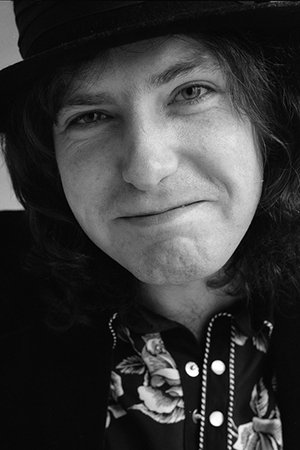Frankie Miller (b. 1949)
Birthplace:
Bridgeton, Glasgow, Scotland, UK
Born:
November 2, 1949
Francis John Miller (born 2 November 1949) is a Scottish rock singer-songwriter and actor. Miller wrote for and performed with many recording artists and is best known for his 1977 album Full House, the singles "Be Good To Yourself", "Darlin'" and his duet with Phil Lynott on the Thin Lizzy song "Still in Love with You". Miller was born in Bridgeton, Glasgow, Scotland in 1949. Miller began singing professionally as a teenager with a Glasgow band called The Stoics. In mid 1970, he moved to London to further his career. Later in 1972, Miller signed a solo recording contract with Chrysalis Records, and recorded his first LP Once in a Blue Moon, with record producer Dave Robinson. The album was an early example of pub rock, and featured backing by the pub rock band Brinsley Schwarz. Miller received consistently good reviews, although his singles and albums were not chart hits, Chrysalis continued to invest in his talent. In 1974 Miller sang "Still in Love with You", as a duet with Phil Lynott; the song appeared on the Thin Lizzy album, Nightlife. Miller's second album High Life, was produced and partly written by Allen Toussaint and recorded in Atlanta, Georgia during 1974. Although two album tracks, "Shoorah Shoorah" and "Play Something Sweet", subsequently provided hits for Betty Wright and Three Dog Night respectively, the album was not a commercial success. Miller's next album The Rock (1975) was recorded in San Francisco using the producer Elliot Mazer, who had co-produced Harvest for Neil Young. The next album Full House (1977), was produced by Chris Thomas. The lead off track "Be Good to Yourself" became Miller's first UK top 40 hit, peaking at No. 27 in the UK Singles Chart during June that year. In 1978 Miller hit the UK top 10 with the song "Darlin' ", which peaked at No. 6 on 14 October 1978. "Darlin' " also made the Billboard "Bubbling Under" chart in the US, peaking at No. 103. The next single penned by Miller "When I'm Away From You" rose to No. 42 in UK, but failed to chart in US. During 1979, Miller wrote the opening and closing songs on the film A Sense of Freedom, as well as performing on them. He diversified into acting. During 1979 Miller starred in Peter McDougall's TV film, Just a Boys' Game, directed by John Mackenzie. In 1980, Miller released his seventh album, Easy Money. The lead single, "Why Don't You Spend the Night", was a minor hit in Australia. Miller later re-recorded the album's closing track, "Tears", as a duet with Bonnie Tyler on her album Faster Than the Speed of Night (1983). Miller moved to Capitol Records for his next album, Standing on the Edge. It was noted by Newsday as a departure from the R&B influences on his earlier releases, sounding more like the music of rock bands Foreigner and Bad Company. In 1985, Miller released his final studio album, Dancing in the Rain. It was produced by John Jansen, and like its predecessor, the album was noted for its rock influences. Mark Deming of AllMusic compared it to Robert Palmer's single "Addicted to Love" and said that the album sounds more "dated" than his earlier work. ... Source: Article "Frankie Miller" from Wikipedia in English, licensed under CC-BY-SA 3.0.





